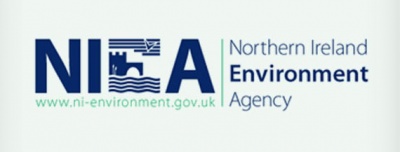NI consults on independent environment agency
 The Northern Irish government is considering the possibility of creating an independent environmental protection agency when it restructures its departments next year.
The Northern Irish government is considering the possibility of creating an independent environmental protection agency when it restructures its departments next year.
As part of the Stormont House Agreements, the number of Northern Irish departments will be reduced from 12 to 9 next May, with the functions of the Department of the Environment (DOENI) being transferred into the new Departments of Agriculture, Environment and Rural Affairs (DAERA), Infrastructure and Communities.
This restructuring has, DOENI reports, caused concerns that environmental protection functions will be fragmented between several departments, with the possible result that the environment is ‘relegated in importance as it competes with other priorities in the new departments’.
Environment Minister Mark H Durkan has supported an independent environment agency for some time, and DOENI held a similar consultation in 2011. On that occasion, DOENI says, the majority of consultants supported an independent agency but a ‘root and branch review’ of the Northern Ireland Environment Agency (NIEA) was instead carried out.
Consultation details
The consultation highlights how the environmental protection landscape has changed over the last four years, with the relationship between DOENI and NIEA changing as departmental restructuring has taken place.
Indeed, following the Mobuoy waste scandal, which has recently been revisited with estimates of the amount of waste dumped illegally at a quarry near Londonderry being increased to one million tonnes, the independent ‘Mills Review’ made recommendations regarding structural and process improvements to the NIEA.
As with the consultation in 2011, the paper released today by DOENI ‘considers four major drivers’ that will impact on the environment in the coming years:
- ‘the need for environmental justice to guide what we do and how we manage the environment;
- ‘the impact of the economic downturn (and consequent [austerity] measures) and the need for everyone to work more effectively within constrained resources;
- ‘expectations and opportunities as a result of the evolving process of devolution; and
- ‘the need to enter into collaborations with colleagues in other jurisdictions on North/South, East/West and international bases.’
An independent agency, the paper contends, would ‘allow greater flexibility to make the changes necessary to speed up decisions and actions’ and would become an easily identifiable champion for the protection of the country’s environment, rather than just a small part of a governmental department.
Four options are proposed in the paper, each with considered pros and cons. These are:
- Option A: Maintaining the status quo – retaining the NIEA as an executive agency of DAERA;
- Option B: Transferring all current NIEA functions to an independent agency;
- Option C: Full reorganisation – transferring significant responsibilities to an independent agency that delivers ‘modern environmental regulation’; and
- Option D: Creating a regulation-orientated independent environmental protection agency, a non-departmental public body that would carry only the key regulatory functions of the NIEA.
Separation between central government and regulator ‘the way forward’
Commenting on the discussion paper, Durkan said: “The restructuring of government departments next May creates an opportunity to put the appropriate structures in place to ensure our environment gets the level of protection it deserves.
“Some key stakeholders have expressed concerns since after May there will no longer be a Department of the Environment, with its functions being transferred across a number of departments. They fear that environmental protection functions will have to compete with other priorities in these new departments.
“While I share some of these concerns, I also want to seize the opportunity that this offers. Most jurisdictions on these islands and Europe have some form of independent environment body. They have successfully demonstrated the advantages of a clear separation of roles and responsibilities between central government departments and those responsible for overseeing and implementing protection and regulatory responsibilities.
“I believe that an independent environmental protection agency is the way forward and the time to act is now so that this can be factored in to the restructuring plans that are underway. We need to get this right and the only way to do this is collaboratively. I want to hear from as many stakeholders as possible and would encourage them to carefully consider the content of the discussion document and take the time to respond with their views.”
Craig McGuicken, Chief Executive of the Northern Ireland Environment Link, commented: “The environment sector in Northern Ireland supports the approach taken by the minister and we welcome the opportunity to participate in this process. We feel that the time is right to review environmental protection in Northern Ireland and have recently initiated research into different models of environmental governance. Our environment underpins the health and economy of our society, and it’s essential that we get this right.”
Stakeholders have until 25 January to submit their responses to the consultation.
Read more about the Mills Report into environmental protection in Northern Ireland.





